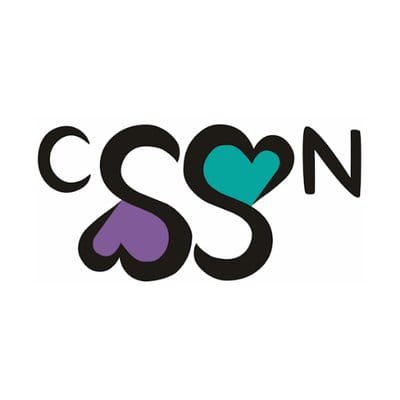What’s going on Heroes? Happy Friday! Usually I keep Cosplay Cafe light but I feel given what’s been happening that this interview with Cosplayers Survivor Support Network could not have come at a better time. A big thank you to Trickssi who runs CSSN for taking the time out to do another interview with us. This deals with subjects such as stalking, harassment, abuse, and assault. For readers who cannot handle that subject matter we understand. You can comeback in about two weeks and we will be back to our regular cosplay programming. That said please share this interview with others across social; we never know if someone is suffering in silence.

1. What is the Cosplayer Survivor Support Network (CSSN)?
We are a for-us, by-us group for cosplayers who have experienced stalking, harassment, abuse, or assault, either at a convention or outside of it. Our founders are survivors and volunteers who want to connect with other people like us because we didn’t have adequate support during our times of need, and we want to be that support for others.
2. What is the goal of CSSN?
We strive to improve conditions for attendees at anime/ video gaming conventions, and we provide resources for everyone to reference if and when they should experience harassment and want help.
3. What inspired you to make something like CSSN?
It was probably a combination of being harassed at conventions and not knowing what to do about it, experiencing stalking and sexual assault, the political atmosphere being that a confessed sexual assaulter is our president, and the budding #MeToo movement that led to the creation of CSSN. Almost everyone I knew had a story about being harassed at a convention or online in regards to cosplay. And too often, targets are told, “Why didn’t you wear something else? You were asking for it.” That’s an incredibly victim-blaming statement that we don’t agree with here, and something we know as cosplayers simply ISN’T what cosplay is about. We all have a right to represent our favorite characters without being stalked, harassed, abused, or assaulted in any capacity; yet, it seems not every convention or online space for cosplayers understands that this means our rights need to be protected.
4. As someone who is more of a fan of cosplay and doesn’t cosplay. What are some things I can do to help an organization like CSSN?
The first and best thing you can do — in all areas of your life and not just cosplay — is to believe and support survivors. Regardless of having “facts,” regardless of a person not treating you the same way, we need you to take everyone who confides in you that something traumatic happened to them seriously. If you don’t know what to say when someone tells you about what happened to them, “I’m so sorry you went through that. I can’t possibly understand what it’s like, but I believe you,” is all you really need to say. If you’re unsure of how to engage with a survivor, we have suggestions on what to do if someone confides in you here: http://cosplayer-ssn.org/help.php. If you want to start a conversation about harassment, or respond to someone who makes an abusive/insensitive comment, we have some tips here as well: http://cosplayer-ssn.org/converse.php
But follow up your words with action. Saying you believe a survivor but throwing likes, comments, or shares at people in our community who allegedly stalk, harass, abuse, or assault others is NOT supportive. Likewise, being a passive or encouraging bystander when harassment happens is also NOT supportive. Even if you’re too scared to act directly or unsure what to do, you can try to find someone who can help. If someone’s being harassed and all they see around them are others watching it occur, it makes the experience even worse, intensifying feelings of helplessness.
Especially if you’re in the position of someone who isn’t covered by the pithy “cosplay is not consent” non-policy, we need you to reach out to conventions that don’t pass their report card and demand, not ask, that their policies be updated to protect all attendees to the highest degree possible. If your friend makes a crude comment or a rape “joke,” tell them that’s not cool — especially if you’re a cis man talking to a cis man. Sometimes all it takes for someone to change is to call them out on their behavior. It works best in person, but written communication will retain a paper trail.
We also still have areas of volunteer-ship open — graphic design, for example, and we need help understanding conventions outside of what we attend (comic cons, tabletop gaming cons, etc.).
5. What are some things cosplayers can do when it comes to dealing with harassment at conventions? I know with recent events happening, I’m certain there are cosplayers who honestly don’t know how to deal with those situations.
We’ll preface this: we don’t want to imply that there’s any way one can avoid being harassed, etc., because there isn’t. If you are ever harassed, it isn’t your fault, and likewise, if you try your best to deal with a situation and it only seems to get worse, that isn’t your fault, either. The blame lies solely with the person who is doing the harassment. Period. That person is making a conscious choice to harm another.
But there are steps you can take when it does happen to you and ways to make yourself feel empowered and safe. Regardless of what you’re wearing, regardless of the convention or the time of year, we recommend looking up a convention’s code of conduct. It should contain a section about harassment — and if it doesn’t, you should join us in speaking up to the convention about changing their policies. Make sure you know who to contact if you encounter a situation that makes you feel uncomfortable (because remember, harassment is defined by the person being harassed!)— and if it isn’t listed, again, you should join us in speaking up to the convention about changing their policies.
We understand that there is pressure to “just call the police” if something goes wrong; however, we also know that the police often don’t consider harassment reports to be as serious as they are, and that it’s intimidating when they’re the only contact you can think to call if you can’t get to another type of security or help. (Not to mention, racism in our country may make minorities especially feel like the calling the police will get THEM in trouble. If you’re unaware of the extra harassment black cosplayers deal with just for being black, we recommend you check out the #BlackCosplayerHere tag on Twitter — with a warning that some content will be upsetting — and go follow/ share those cosplayers’ photos to show your support!)
If you don’t feel safe or for whatever other reason don’t feel like you want to report the incident, that’s okay, too. A lot of cons urge you to report instances asap so they can “help you” faster. We recognize that sometimes there are aggravating factors for why one might not want to report, such as if the harasser is a staff member, or is friends with staff/ potential responders, or if the harasser is a friend or intimate partner and there’s fear of retaliation. We also recognize that sometimes the people responding to situations involving harassment, etc., often aren’t guaranteed to be trained in sensitivity and may ask invasive, inappropriate questions or treat the target with disrespect. We could go on.
Going to a convention with friends is an ideal way to have reliable support, but there are times when it’s not possible or when they aren’t someone you feel you could tell about the particular situation. Simply saying “use the buddy system” isn’t a solution by far, especially when hallways are overcrowded and events such as harassing words can occur such that nobody but the target is able to hear or respond to them.
If you’re not the target of harassment, but you see it happening, we’ve discussed how you can help here at the bottom of the page: http://cosplayer-ssn.org/help.php Becoming aggressive or confronting the harasser runs the risk of escalating the situation or landing you in trouble; it’s better to focus on the target. Try to get them to a safe place. Validate their feelings (e.g. “It’s understandable that you’re upset”). If you’re not comfortable doing this yourself, get help from someone who can.
Even if you can’t help directly, or the situation is over by the time you speak to the target of harassment, it can be as simple as reassuring them that they didn’t deserve to have that happen to them and that it’s not their fault.
6. How can a convention do better when it comes harassment? I know some conventions have posted ‘Cosplay is not Consent’ signs but something you’ve pointed out that I didn’t take into consideration is what are the consequences when you break those rules.
We want to make it clear to anyone who’s never experienced stalking, harassment, abuse, or assault that in some cases, it’s physically impossible for the target to go somewhere or make a phone call, especially by themselves. The effects of trauma can be immediate even if the target is in denial, and it can be triggered by either a real or perceived threat. Not to mention, targets of harassment can include part of our community that requires increased accessibility. Things like large, visible, frequently-spaced signs about what help is available in high and low traffic areas do much more good than signs that just say “Cosplay is not Consent — or else!”
When it comes to signage, a convention NEEDS to post their harassment policy that includes both consequences for violating the policy as well as an email or phone contact for crises in many conspicuous locations. One awesome thing every convention SHOULD do is post the entire harassment policy on the back of bathroom stalls in every single bathroom at the venue. You may not think about it, but a bathroom is exactly where someone might go when they want to be alone after an incident that leaves them feeling shaken. If there’s information immediately available, they know the convention will provide them a safe way to report even when they don’t feel mentally or physically able to go to security onsite.
Conventions should ALSO print the email/ phone number of a contact for issues of harassment on the back of every badge. We say “also” because there are times when an attendee won’t have a badge and might experience harassment— times like when they arrive onsite for the first time but haven’t gotten through the badge line, or if they left it in their hotel room by accident, or if it’s physically out of reach when an emergent situation occurs and they are unable to get to it for any reason. Large signage is STILL important. And whether we like it or not (and we personally don’t condone it but we realize it happens), there will be people attending conventions or the con’s venue outside of their badged areas— consider that they may witness harassment and wish to help, or might be able to alert a badged attendee that their badge also has a contact number if that information is on the accessible signage. Conventions must keep in mind that no attendee should be expected to know all information about how, where, and circumstances to report, and that if they aren’t providing this information, they are not being sensitive or responsible in their approach.
Above all, conventions MUST provide support for anonymous reporting.
We’ll leave you with this: There was a convention that had a large printout of a brand of markers, urging convention attendees to write their names or contact information on their badges in case they get lost. While this is a good idea to some extent, we noticed what WASN’T posted, anywhere: a harassment policy in plain language, in plain sight. Attendees were urged to “go to security” or “find a security member.” Security members did wear conspicuous vests, but there was no phone number or email to contact for anonymous care. So if, for example, a staff member said something harassing you and they were friends with the nearby security guard, you wouldn’t receive the same care as someone who was reporting an unknown party for the same harassment. Likewise, from personal circumstances we know that this convention did not have adequate communication between security, heads of departments, and con ops, and when an incident did occur that could have been stopped had adequate measures been in place, it was extremely distressing.
7. What would be the ideal way to trying to change a conventions policy on harassment?
The first resource we recommend when people ask about actually enacting change is working with Uplift (uplifttogether.org). Their conresources.org page explains what they do. They’re a phenomenal nonprofit and 2 of the 3 of us volunteer for their social media and conventions teams in our spare time.
Secondly, reach out to your favorite and/or local conventions and tell them what needs to be improved with their policy. If you need somewhere to start, here’s the report card: http://cosplayer-ssn.org/policies.php (and if your convention of choice isn’t on the report card, shoot us an email at info@cosplayer-ssn.org so we can evaluate them) Get your friends to reach out, too. There’s strength in numbers and if we don’t call out their faulty policies en mass, they’re more likely to ignore us. Don’t let them.
8. What are some resources people can use to educate themselves on harassment issues?
It depends on what you’re looking for? If you’re curious about the kinds of harassment people experience at conventions, we host a number of articles written by survivors on our website here: http://cosplayer-ssn.org/articles/home.php. There are also conversation starters that we mentioned earlier here: http://cosplayer-ssn.org/converse.php. But really, you could walk into any room in any convention in any city in any part of the United States and probably Canada (and probably Earth, but we only research cons in the U.S. and Canada at the moment) and say, “raise your hand if you’ve ever been harassed,” and get more hands than you expected.
When you’re looking to learn from people who have been harassed and you’ve never been harassed yourself—or not to the same degree, as stalking is not exactly like harassment, and verbal harassment is not exactly like rape—it’s helpful to keep an open mind. Cosplayers routinely put themselves in the shoes of the characters they wear; put yourself in THEIR shoes when you ask for their perspective.
Realize also that if you haven’t been in these circumstances, you are privileged. Privilege doesn’t mean you’re free from all hardship and that your life is easy. Privilege means that this particular hardship isn’t affecting your life.
Lastly, speaking up to help others is great but don’t speak over us. Share our content rather than re-posting or leaving it at liking. We need your help but we’re the only ones who can do justice to our own stories.
9. If conventions want to reach out and work with you, how would they be able to do that?
It’s as simple as emailing us at info@cosplayer-ssn.org or messaging us on Facebook or Twitter (@cosplayer_ssn).
10. Any advice for those that afraid to speak out or speak up? I’ve seen how difficult it can be for victims and understand they need our support by believing them but I’ve always wanted to know if I could do more for them than that.
If you’re reading this and you’re afraid to speak up, whether for retaliation or otherwise, we want you to know that it’s okay if you never want to speak about what happened to you. It doesn’t make your experiences any less real or painful. You’re still courageous for being a survivor because you survived the situation, even if at times you didn’t think you wanted to.
As for how you can make them feel more comfortable about what they’ve been through, see our answer to question 4— make it clear you believe them not just through words, but action.
Thank you so much for the opportunity to speak about what we can do to improve our community! We really appreciate it and would love to hear from you.







